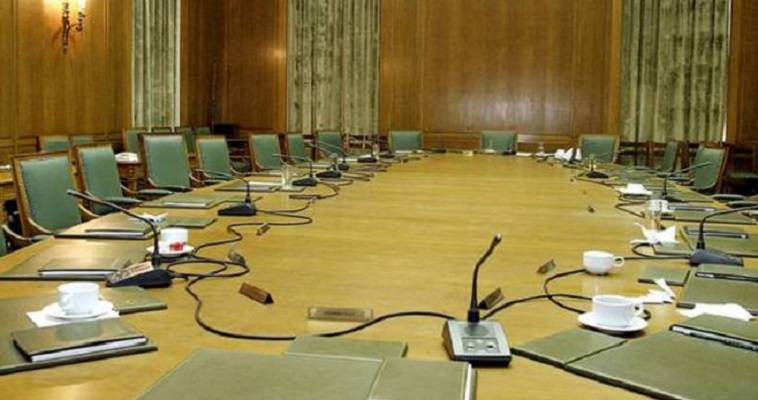Stavros Lygeros: What criteria did Mitsotakis use for his government reshuffle
05/01/2021
A government reshuffle has always been a difficult equation for any prime minister. The fact that he has the institutional privilege to share portfolios, that is, political power, does not mean that he can do so solely on the basis of his personal esteem for individuals. It is obvious that it takes into account a number of factors. Kyriakos Mitsotakis is no exception. Before referring to the current reshuffle, let me make a general reference to these factors.
We are not talking about two-party or three-party governments, so the composition of the Council of Ministers is also institutionally negotiated between the political leaders and those with their parties. We are talking about a one-party government, a product of autonomy. And in this case, however, the internal party balances are just one of these factors, albeit the most obvious.
When we say intra-party balances we mean three things:
- First, balances within the prime ministerial circle, or otherwise within the “presidential” circle.
- Secondly, balances between the presidential and other internal party groups.
- Third, balances at the level of geographical representation. These balances, in fact, gain weight if there is a prospect of elections, as now.
However, apart from the visible internal party balances, there are also non-party balances, which are almost always “invisible”. The preferences of the Euro-hierophants for persons who will undertake portfolios, such as e.g. Finance are more or less taken into account. The same goes for Washington’s preferences for who will take on specific portfolios, such as Foreign Affairs, Defense, and Civil Protection.
Finally, there is another level of extra-party balance: the preferences of the wealthy oligarchs and the media. Although he does not confess such, the prime minister also takes them into account when forming his government. This is because the placement of one or the other minister can secure the financial or media support of one or the other oligarch.
“To a degree”
All of the above are to some extent inevitable. The political choice has never been to show the will of the individual leader alone, much less in parliamentary regimes, where entanglement is a non-institutional but existing component. That being said, the crucial word is “to some degree”. And everything shows that there is a problem here.
Let us now talk about the current reorganization. To judge this reshuffle, it is necessary to go back to July 2019 to trace the criteria by which Mitsotakis had then formed the government. I will bypass the commitment we had heard from him and his predecessors about a small and flexible format.
In fact, it is a stereotype that has taken on “unmistakable truth” dimensions simply because governments in Europe are usually smaller in number. Only that, what works well in other European countries does not mean that it will work well here. In Greece, the public administration is traditionally castrated by the political party system.
Therefore, ministers, deputy ministers, and secretaries-general do a lot of management and not just political planning, as is their role. This does not change with an administrative decision. So another culture needs to be ingrained into the government-public administration relationship so that ministers can limit themselves to political planning.
It is no coincidence that while all incoming prime ministers “swear” that they will form a “small and flexible government” when the time comes and they announce it, the number of ministers and deputy ministers usually exceeds 50. Mitsotakis, in fact, with the current reshuffle came close to reaching 60.
The “icing” on the “cake”
In July 2019, Mitsotakis “coupled” ministers, who were typically traditional ND MPs, to a large number of non-parliamentary deputy ministers, who typically came from the private sector, often multinationals and were described as technocrats. In previous governments there were some such people, but in the first Mitsotakis government it was not about “icing on the cake”, but about the structure of the “cake” itself.
The central goal of the Prime Minister was and remains, on the one hand, the absolute control of the government mechanism, and on the other hand, the implementation of his personal political choices. In order to achieve this, he moved on two levels: First – as I mentioned before – he appointed extra-parliamentary deputy ministers, who had a reference to him and not to New Democracy as a whole. We remind you that the elder Mitsotakis in the period 1990-93 controlled his ministers, through general secretaries selected by him.
Second, under the title “Staff State” he set up a “prime minister”, which was essentially declared the center of decision-making of almost all government decisions. Ministers have been downgraded compared to the past. Those who, in fact, have their own political status were usually trapped between the “prime minister” and sometimes their alternate or deputy minister.
Mitsotakis, in fact, had made sure that the deputy ministers had responsibilities determined in advance by him. In some cases, in fact, the ministers saw in the process their most important responsibilities being transferred to their subordinates, with the typical example of Georgiadis and Papathanasis in the Ministry of Development.
Mitsotakis turns to the deputies
From July, it was clear that Mitsotakis had invested high expectations in the technocrats he had appointed as deputy ministers. Apparently, he believed that because of their tenure in large companies, they would graft the ministries with the managerial spirit that prevails in such institutions. Who does not remember the appointment of Grigoris Zarifopoulos to the position of Deputy Minister of Digital Government, due to the fact that he was a manager at Google.
Now, the “magician” of our digital world, Zarifopoulos, has been fired and replaced by Arta MP Giorgos Stylios, a caretaker by profession, but with rich party credentials. What happened? Did Mitsotakis realize that things are not exactly as he thought? Probably not. It is politically naive, however, to think that the state apparatus can function like a large company.
One and a half years later, the prime minister is fleshing out the government with deputies, usually without a technocratic background. The PM’s office did not feel the need to explain this partial turn. The current interpretation is that he put MPs in the government in view of the elections he is planning. The votes, after all, are brought in by the deputies, not by the extra-parliamentary technocrats. So, ideological eclectic affiliations are good, but votes are better, especially now that clouds are starting to accumulate on the government horizon.





